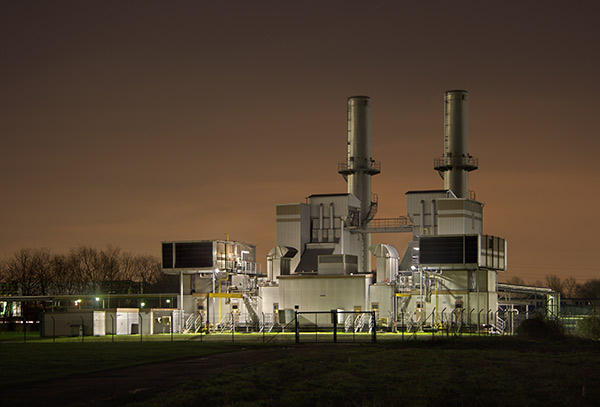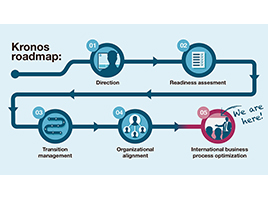For most businesses, profits are only determined after accounting for all the mandatory expenses. It may include employee salaries, costs of the raw materials, inventory costs, and several other expenses.

Having said that, one of the most important expenses, particularly for the companies that need transportation facilities, is the cost of fuel. Running errands, making trips to fetch the raw materials, and also to deliver the finished products, are some of the broader expenses included.
However, with quite the pace of development that modern technology has on offer, there’s an easy solution. Especially the businesses that have their own fleet of transportation vehicles such as trucks and trailers can easily manage and reduce the cost of fuel with this solution.
The solution is a portable fuel tank.
Significantly, businesses can now manage their fueling costs, generate reports, and keep a check on the overall profitability. Here are some key benefits that trucking businesses can achieve using a portable fuel tank.
Save Trips To The Fueling Station
Of course, whenever a truck needs a refill, it would need to make a trip to the nearest fueling station. However, there’s no defined radius for the nearest station. It could be several miles away from the fleet’s resting site or just around the corner. Regardless, every trip would mount up to additional fuel costs for getting a refill. Instead, having a portable fuel tank right at the fleet’s location can save these expenses. And in return, an easy increase in profitability can be expected.
Keep Track Of Fuel Consumption
Another benefit of having a fueling station right within the premises is easy reporting. Of course, the business owners can now easily draw out reports without having to visit the outsourced or partnered fueling station at the end of every month. In addition to this, the business owners can now easily keep track of the consumption and avoid any discrepancies in the reporting. Thus, mitigating the unknown losses.
Compatibility With Different Fuels & Fluids
Most of all, a portable fueling station can be made compatible with more than one fuel. For example, if the fleet contains diesel, petrol, and gas vehicles, the same fuel tank can be used for all. There are available models that have separate chambers within a single construction unit. In other words, a single unit tank can be used to store several fuel types. Or otherwise, separate smaller tanks can always be bought for different fuels depending on the necessity. Subsequently, there’s no need to figure out different solutions for just one need- refueling.
Most probably, you need no more convincing for owning a mobile refueling station for your trucking business. However, the next thing that you may struggle with is what should you be considering when buying a fuel tank.
Things To Look For When Buying A Portable Fuel Tank
Of course, there’s no single make or model for portable fuel tanks available in the market. Subsequently, it can get overwhelmingly difficult to choose the right fit for your requirement. But thankfully, we have a few key features that can help you find a perfect refueling tank for your fleet management.
- Ensuring The Built Quality
One of the first and probably the most important feature that you must look forward to is the quality of the tank. There are several materials like polymer and stainless steel that are commonly used for making these tanks. That being said, all the materials have different properties and can affect the quality of the stored fuel. Moreover, the type of material can also affect the safety of the premises, as a weaker material can cause fuel leaks, which may lead to fire accidents. Therefore, endure that you choose a tank that can be used under all conditions and is sealed properly to withstand high fuel pressures. It is important that you consider the pressure resistance because fuels are volatile and tend to increase the internal pressure of the tank. And if the tank couldn’t withstand high pressures, it may burst and cause fatal accidents.
- Figuring Out The Capacity
The next thing to consider is, of course, the capacity of the tank. Ideally, you must consider buying a tank that can at least fulfill a single refill for all your fleet. But, of course, depending upon other needs you can look for a higher capacity tank. That being said, the capacity of the tank should not be any lesser than the total tank capacity of at least two-thirds of your fleet. After all, the primary reason you’re buying a tank is to reduce the cost of getting frequent refills for your fleet. And if you’re tank is too small, this purpose is indeed unserved.
- Installation Requirements
Another thing that’s quite important when making the purchase decision is the installation requirements for the tank. There are tanks that can be mounted on to a trailer, and then there are those that need to be fixed at a site. And both have their own benefits. For example, if you consider buying a portable fuel tank, you can also send it to refuel your fleet remotely. On the other hand, if you have a fixed standby tank, you can store much more fuel than a portable one. That being said, you can also look forward to getting both options, if you find the necessity.
- And Of Course, The Budget
Lastly, no purchase is surely independent of the budget. So, when buying a fuel tank, be it a portable one or a standby one, you must keep track of your budget. Usually, the cost of the tank depends on the type of material, tank capacity, and also additional features that come along. So, you can easily optimize your purchase for your needs according to your budget.
A fuel tank is undoubtedly the most beneficial investment that a business could make, particularly when transportation is an indispensable part of it. With imminent benefits in helping increase the profitability along with ensuring a better quality of the fuel, transportation businesses can expect higher returns on their investment.





